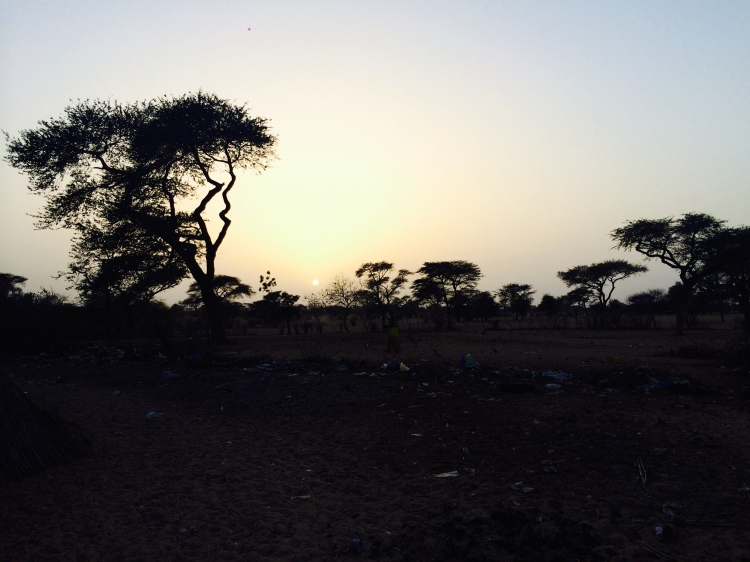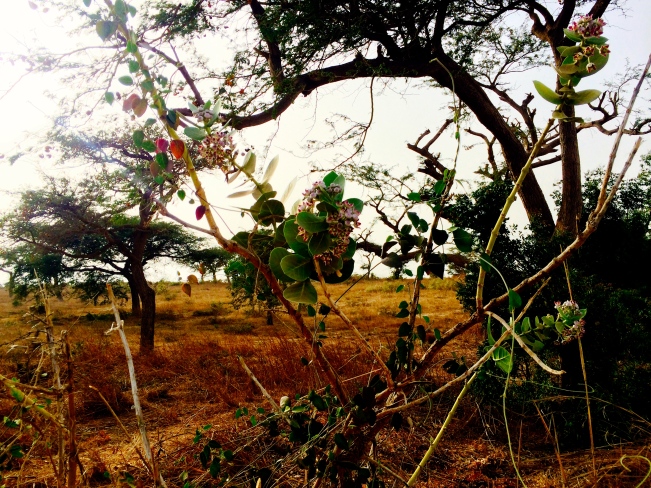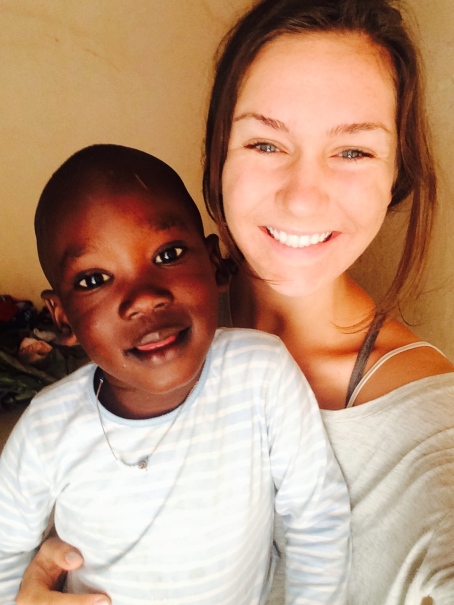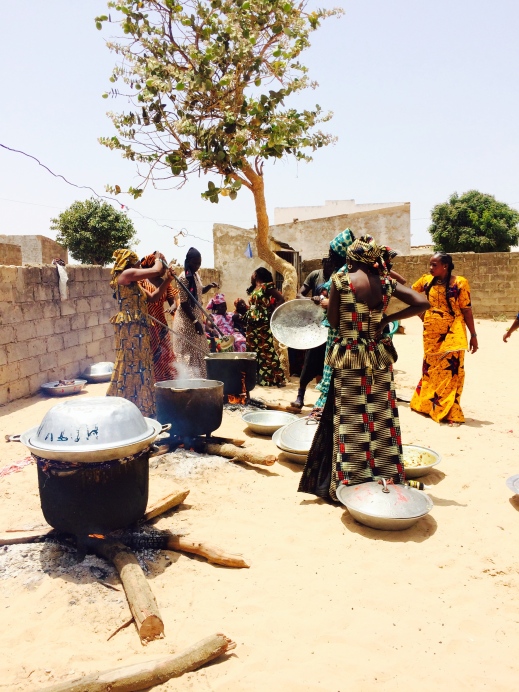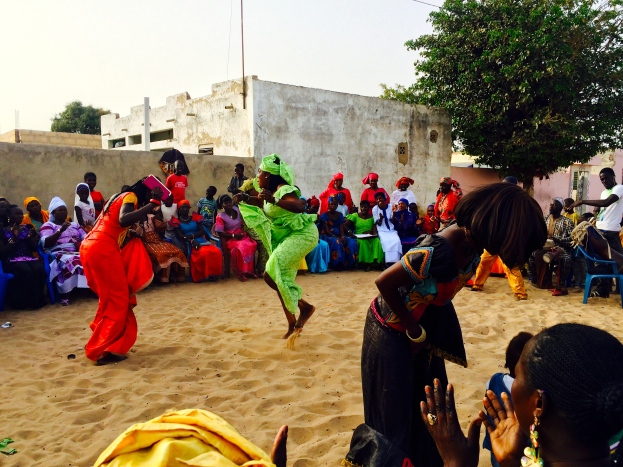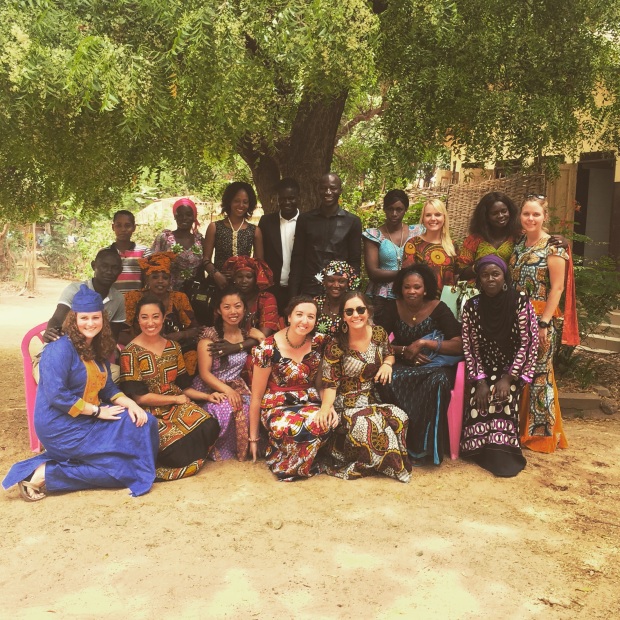Initially a playful notion, who’s to say that Joanne (Jojo) Murdoch thought it a considerable possibility at the time she offered it. For anyone who isn’t familiar with the fluttery feminine that is my mother, she lovably lays it out thick, and often. Even in its slightly quixotic nature, I should have never put it past her to see this this one through. A follow-up call a mere few weeks later confirmed this resiliency; the Murdoch’s were coming to Senegal.
Fast forward a few months (and a few more vaccinations later) to October 11th. After minimal turbulence across the Atlantic, the pair landed safely into Léopold Sédar Senghor, Dakar’s International Airport. I had posted up at the arrivals gate a wee bit early (eager eh?), to nest the perfect locale for a surprise welcoming. Imagine then, what a hilarity it was to stand witness to their initial few steps upon the country’s soil: Instantaneous bombardment compliments of hawking taxi men, who subsequently hoisted their baggage ten steps ahead with the corrupted notion that these two toubabs (foreigners) would pay ten fold to the actual price of a cab in the city.
My GoPro and I got there just in the knick of time to scoop them away from said hawkers, however I am a bit technologically delayed and managed to record zilch of this entertaining fiasco. My mother’s first reaction upon my abrupt arrival might you ask?
“Nikki, what the hell did you do to your hair?”
It appears that braids trump a hug after an eight month physical hiatus between mother and child. Still, this was the defining moment which ascertained that the two afternoons spent on the receiving end of fervent, ardent mangling was entirely worth it.

And with that, Tom, Joanne, Nicole, and Nicole’s creature-like braids took to their tour.
Tour (n.) – 1 a journey for pleasure in which several different places are visited.
In the effort to not bore away the scant readership of this intermittent blog, I shall narrow the narrative to the juicier bits:
Public Transportation (in order of debut)
Santé Allah! They did it! Fresh out of the starting gate, day 1, our clunky-funky taxi broke down right along the belt below the towering, majestic (and might I add, North Korean financed) Le Monument de la Renaissance Africaine. Pretty scenic pit stop if you ask me. I mention this because moments later another taxi skids over to collect the driver’s disconcerted passengers, free of charge. How’s that for your daily dose of Senegalese teranga? (Wolof for “hospitality”, a chief element of the country’s culture and pride.)
You can catch sharets (donkey or horse drawn carts) nearly anywhere in large towns and cities for a small fare, but there’s a bit of a bougie bush village perk when your host family has their own donkey to yomballi (take along) you and your loved ones safely home in times of fierce, relentless sun rays. See below that maneuverability is entirely possible atop sharets, including but not limited to, selfies.
Additional photo reference of a sharet in proper action. The kids running alongside your ride come free of charge.
The art of hitchhiking is a practiced affair. Normally, one falls into a nice daydream or meditative state after positioning oneself in a conspicuous location to those blazing the road, as it very well could be an hour or two before a jalopy slows. On this particular morning, however, there was plenty of standby simulation: a elderly man and a young hothead were getting into a mighty colorful dispute across the way. So much so, that the young kid’s boiling attitude swung him back to his bush taxi to pull out his jaasi (farmer’s machete). Shit, that escalated quickly. Next, you see the true force of village peacemaking: six males, of all size and stature, working together to disarm the boy. Among them: my 72 year old host father. After a successful hogtying, tranquility resumed. That is, until this boy’s father came on down to rip him a new one.
Coinciding with the close of morning’s charge, a sept-palaas (station wagon with seven places, often a Peuigot) stopped to gather our gawking gang. As there was only two open seats left, two elderly men lapped up in the front. Naturally.
Not my photo, but accurately represents a casual ride around à la sept-palaas.
The sept-palaas is fine and dandy, perhaps a bit more luxurious, but it pales in comparison to the party that is a janginjaay. These suckers are commonly decked out with decoration aplenty. Baby shoes and talisman can be found hanging from the interior ceiling. The exterior, bedecked with eye-catching designs and tributes to the owner’s marabout or hometown. Furry seats, framed superimposed family photos, beheaded beanie babies. You name it, it’s probably out there, tucked within the innards of these repurposed shipping vans. It’s like walking into a mobile Spencer’s. All that’s missing are lava lamps and whoopee cushions. We caught one on the road home from Toubakouta, located in the Fatick region of Senegal, where the road is unpaved and the potholes are in no short supply. If you don’t toss your cookies from motion sickness, your a bonafide jambaar (Wolof for “warrior”).
Alas, lest we forget the illustrious moto, as in, a whippy little motorcycle. As volunteers, we are banned from taking a spin on these*. So I’ll choose my words wisely. Tom and Joanne so enjoyed their countryside jaunt riding passenger atop the sputtering exhaust! They told me all about it. They had a stacked arsenal of Wolof to get them from Point A to Point B. And that be all. Champions, I tell ya.
*In PC Senegal of yore, each volunteer was actually distributed their own moto for the entirety of their service, until the incidentals and cost of liability rose to the point of removal of this privilege. We still receive a mode of two-wheeled transport, just sans motor. The tried and true velocipede.
#furbishedandfresh
Family Faux Pas
As a guest, a family member, anyone really, it’s customary to bring seriché to those you are visiting, returning to, or staying with in Senegal. Team Murdoch prepared accordingly, stuffing their luggage with knickknacks ranging from DIY wooden airplanes, to american snacks, even a solar lamp for the family compound. I warned that their miscellaneous selection was wonderful, but may perhaps be overwhelming to the recipients. In Senegal, kids and adults alike have an acute knack for repurposing: steel rods become toy “autos”, scraps of leftover fabric sewn into coin purses, and so on. Nonetheless, the exotic nature of these gallimaufries would dice things up. I mean, what’s more novelty than glow sticks!
We would soon eat those words.
Night fell, dinner was taking its sweet time (no surprise there), and I took it to be an appropriate time to start dishing out the luminescent tubes to the kids of the compound. Within seconds, the neighbor kids caught wind and flooded in. Despite it, my teenage and twenty-something sisters and cousins teemed in front – though it took a few sacrificial elbow shoves to earn such a cue. Wild chaos erupted. We had only distributed maybe 20 or so bracelets before my host dad stepped in and storm hatched the place down, informing me to keep my rents inside for the rest of the evening, and that they’d bring in dinner when it was ready. There were 100+ riotous neighbor kids outside for hours into the night. Whoops.
Fortunately, before the debacle at dusk, we were able to fit in a village meeting/causerie for Global Hand Washing Day (Absolutely exploited Mom and Dad as a ploy to up the attendance count)
I can proudly report we were able to quietly abscond the following morning, under the wise direction of my wizened family members, without detection, and were able to make it to our next stopover scratch-free.
It was at this particular stopover, my training village of Ndomor, that mother unintentionally dipped into a mishap of scandalous affection. She had the nerve to french kiss my host great grandfather!
Ok, that was premature to lead with. In her defense, we had been greeting people all day! It’s a tiring affair! The distress of a touring socialite is taxing, ya know? I should stop being a horrible daughter now and clarify that she merely leaned in for the “peck and peck” two cheek greeting commonplace to many a French speaking country. All the trendy women were doing it. Why should it be any different for an elderly, conservative Islamic man? As he leaned back squeamishly tense, you could almost hear the collective inhale of all those witnessing nearby.
I include this not in condescension. In fact, after a quickly blurted, “pardon us”, the tense air had decamped completely, followed by a ripple of contagious giggles soon thereafter. The Senegalese, in general, are extremely lighthearted; and this family had seen me blunder far too many times in my first three months of training for these cross-cultural hiccups to faze them in the slightest. Great Granpappy even asked my mom for a photo on the way out. There you go. Water under the bridge.
The one and only, Maam Sene
While this jabbing is done in jest, it’s important to note that the ‘rents were exceptional troopers. They maneuvered the loud, rambunctious, and erratic setting that often is Senegal. Defecated in pit toilets, ate with their hands (yeah, the juxtaposition to this sequence isn’t too swell, I should mention we all washed our hands often and extensively). They put up with my antics as I crammed a village meeting and a sanitation causerie into their stay, and slept two to a twin size slice-o-foam bed (skeeter net included) on a few particularly sweltering nights. Both even noted the bucket baths hinged on invigorating and refreshing. There was only a handful of diarrheal episodes, and mom didn’t start projectile vomiting until she got back home to Amerikk!
The plug is this: If Tom and Joanne Murdoch can do it, so can you. Bismillah, to anyone considering a trip out.
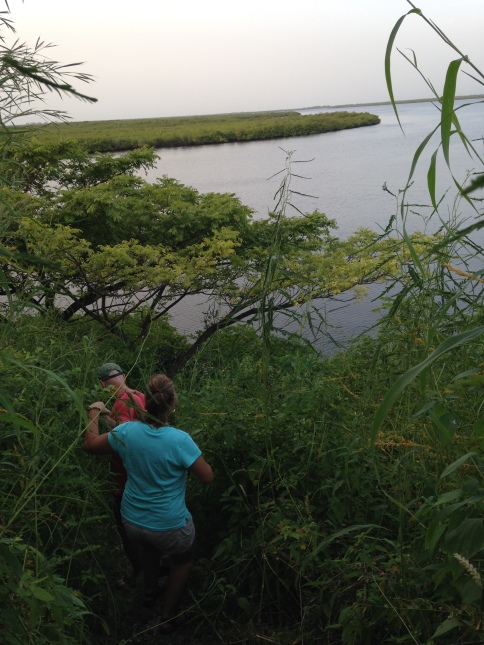
Returning from a walk up to the Sacred Baobab atop Shell Island in Toubakouta, Senegal

We all wish we looked that regal at age three and a half. (Yup, this feline is a toddler still.) Pretty sure the only fiery grin I boasted at that age (or long thereafter) was due to the occasional remnants of Flamin’ Hot CHEETOS® that so unavoidably took prolonged residence all up in my chops.
Sporadically speaking,
N.M.M
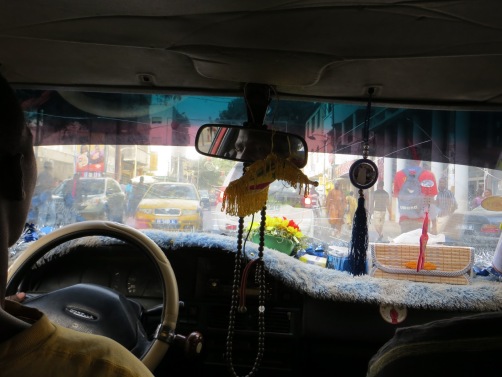

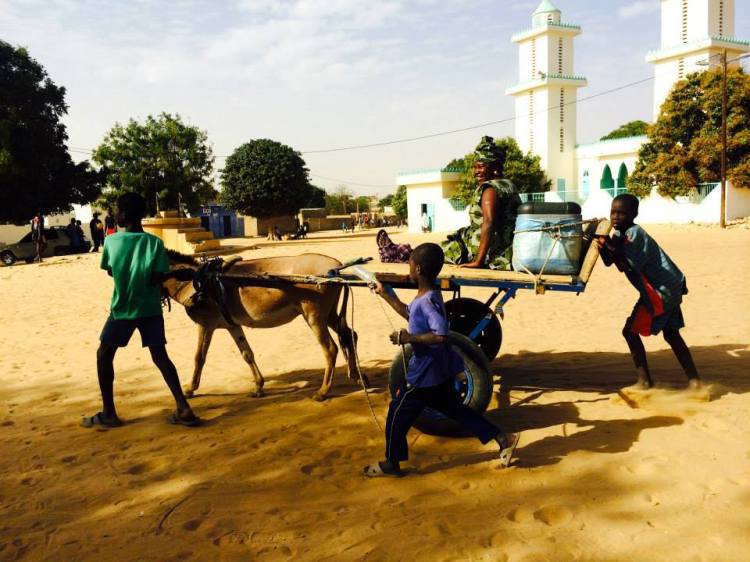
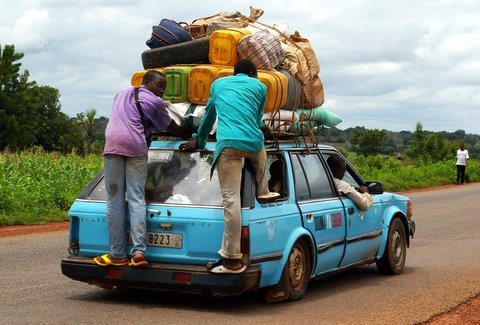
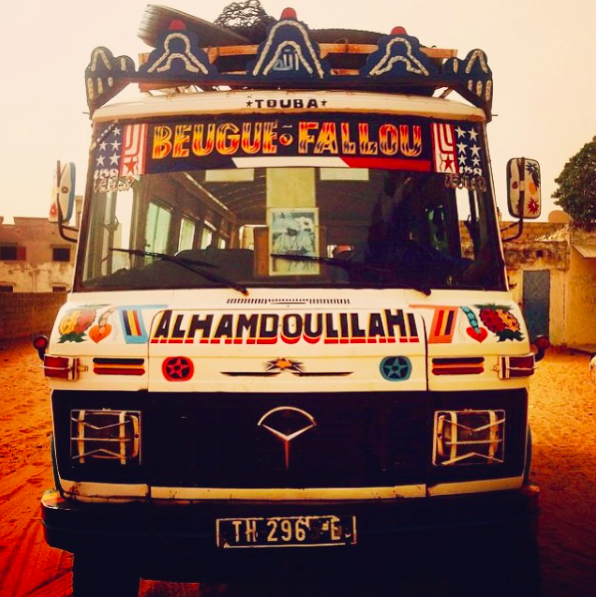
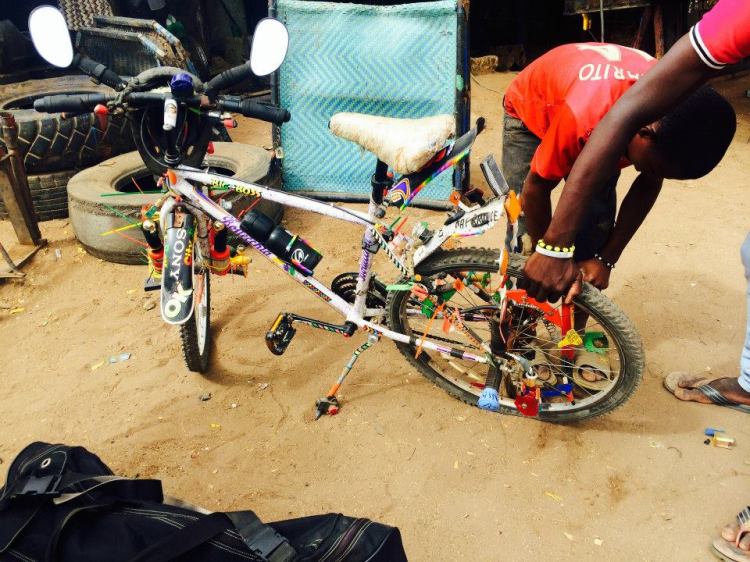
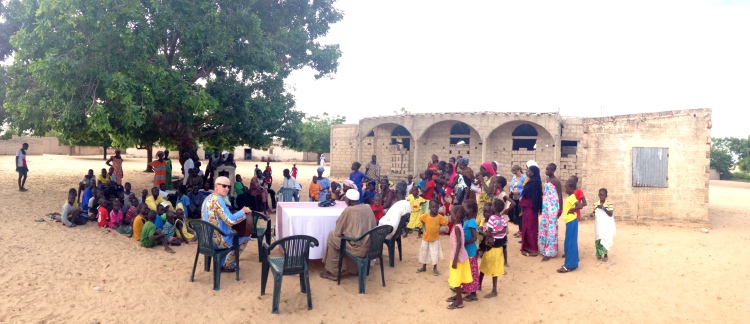
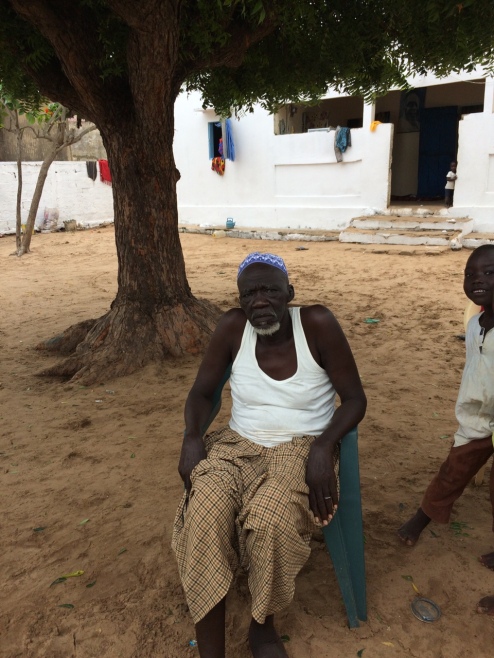
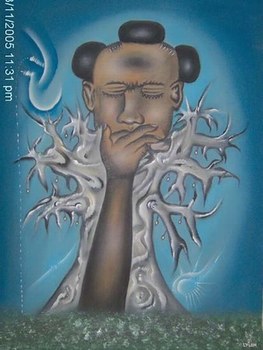
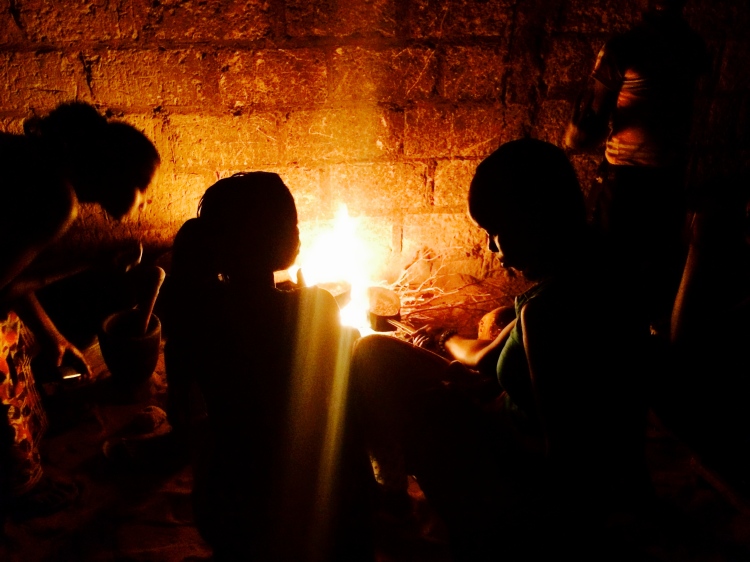


 Dem Bones, Dem Bones
Dem Bones, Dem Bones